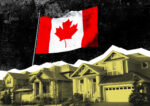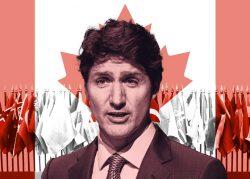Canada’s two-year ban on the purchase of residential property by foreigners was supposed to help Canadian buyers and the real estate business.
Instead, it’s created new headaches.
Flaws in the language of the legislation are causing real harm, according to a note from the economics arm of the Canadian Imperial Bank of Commerce. The note was reported this week by the Financial Post.
Benjamin Tal, an economist for CIBC, noted several word choices of the Prohibition on the Purchase of Residential Property by Non-Canadians Act, which went into effect at the start of the year. The two-year ban was designed to improve affordability during the country’s housing crisis.
First, “Residential Property” is proving to be problematic. While that applies to the obvious structures, it also applies to vacant or developed land zoned for residential use, according to Tal. That’s preventing non-Canadians from owning commercial properties within these zones, greatly expanding the scope of the ban. Tal notes most of Toronto would be covered by this law.
Then, there’s “non-Canadian.” Corporations with foreign ownership of 3 percent or greater are considered non-Canadian. Canadian stock exchange companies are excluded, but not Canadian REITs, which build apartments and affordable housing for many — not under the act, though.
How about “Purchase” — that feels straightforward, no? Well the ban appears to impact both direct and indirect purchases, such as leases, mortgages and shares. More indirect consequences of the law.
“The damage is real,” Tal said, adding that developers foreign-owned or relying on foreign equity are being sidelined from building affordable housing, prolonging the country’s issue. He added that the issues could seep into other sections of the economy.
Tal called on policymakers to amend the legislation to center “only on single units being purchased by foreigners while exempting development of new supply from the impact of the new legislation.”
— Holden Walter-Warner
Read more



